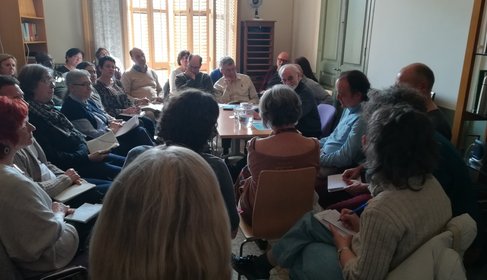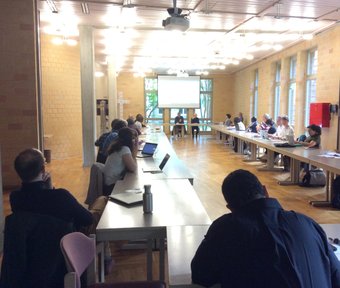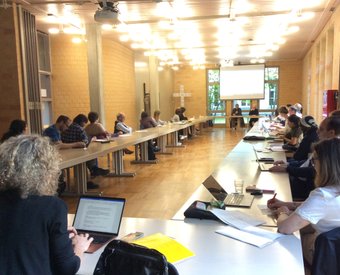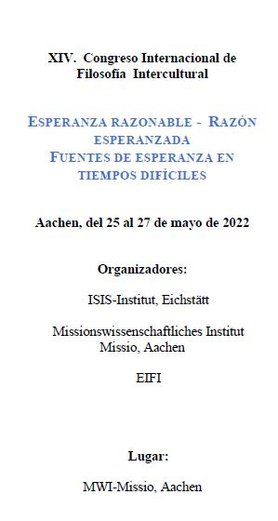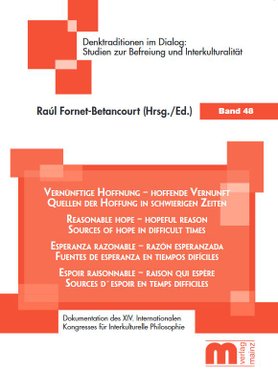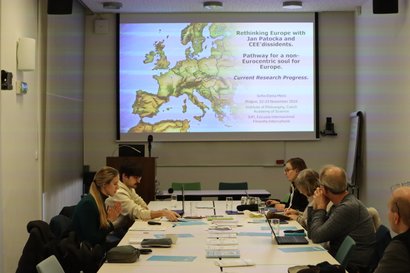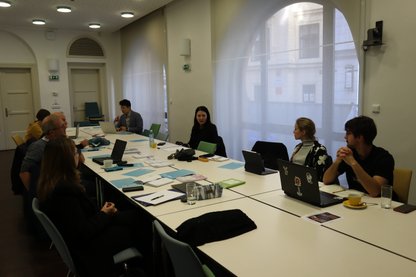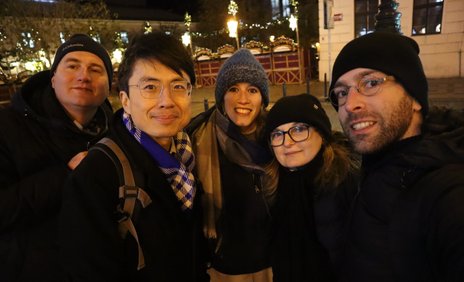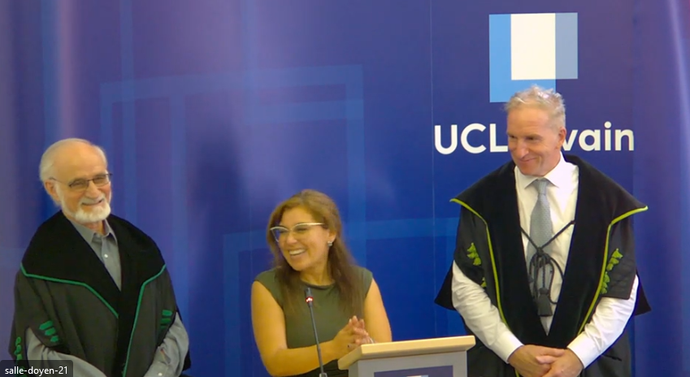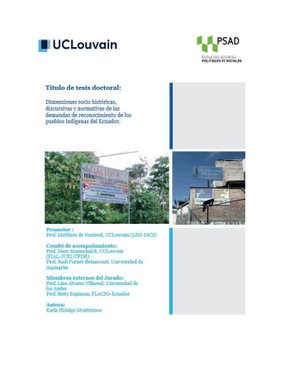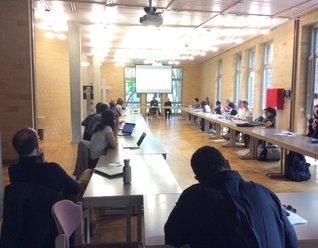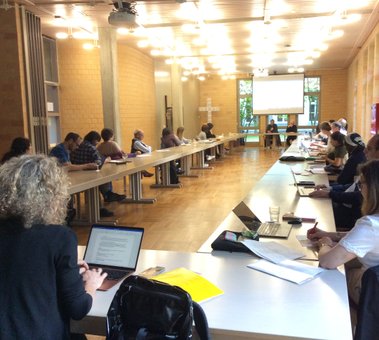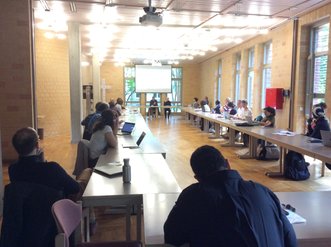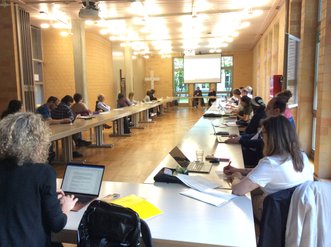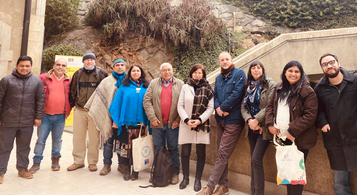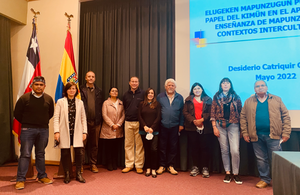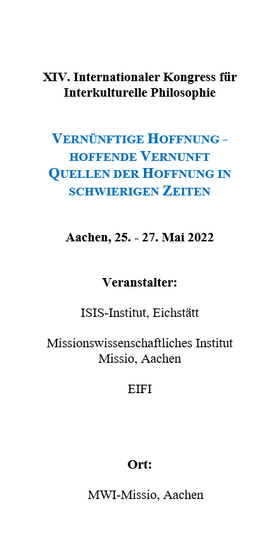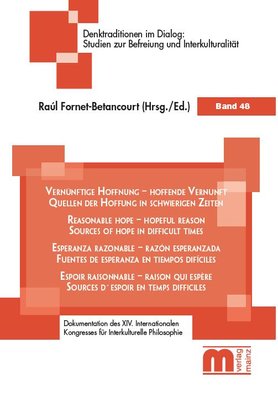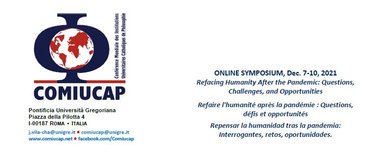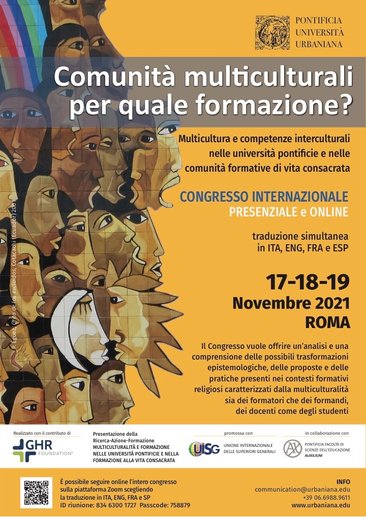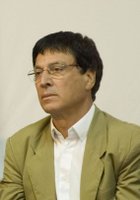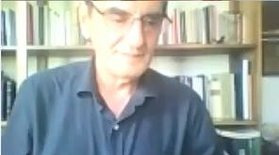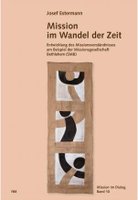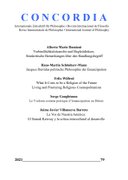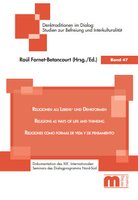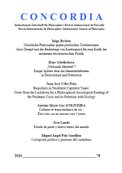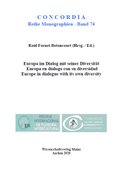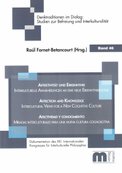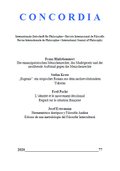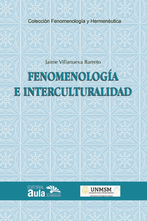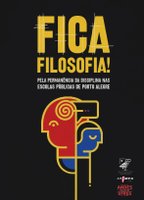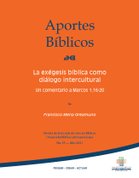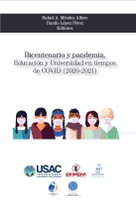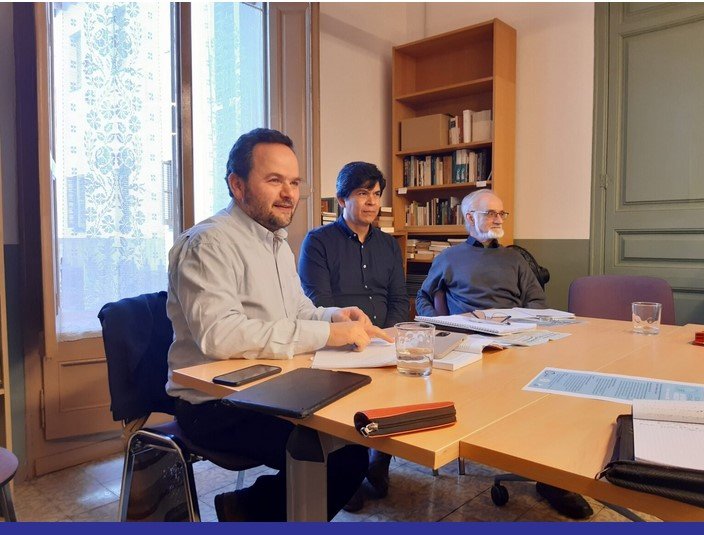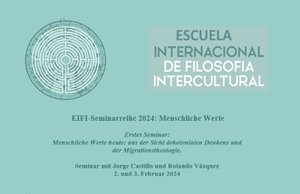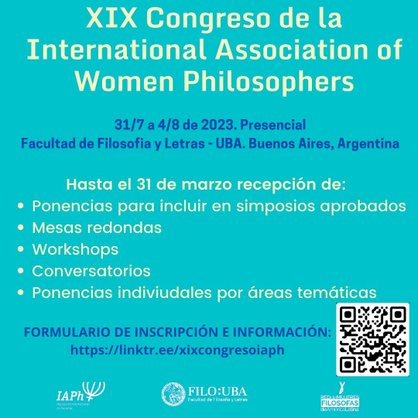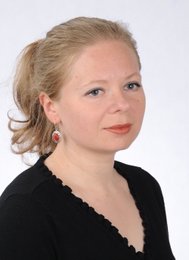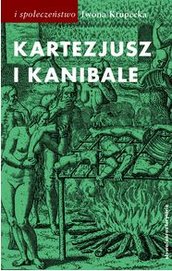Philosophie - Spiritualität - Gesellschaft
Für ein plurales Zusammenleben in einer gemeinsamen Welt
ESCUELA INTERNACIONAL DE FILOSOFÍA INTERCULTURAL
INTERNATIONALE SCHULE FÜR INTERKULTURELLE PHILOSOPHIE
INTERNATIONAL SCHOOL FOR INTERCULTURAL PHILOSOPHY
ÉCOLE INTERNATIONALE DE PHILOSOPHIE INTERCULTURELLE
INFORME RESUMEN del Seminario presencial de la EIFI "La soledad en el mundo de hoy",
a cargo de Raúl Fornet-Betancourt. Barcelona, 11 y 12 de marzo de 2022
El viernes y sábado 11 y 12 de marzo, los nublazones del clima barcelonés, la lluvia interrumpida o amenazante, invitaban al recogimiento conversador y amistoso. Invitaban, de alguna manera acordándose amorosamente con los propósitos de este Seminario, no al solipsismo egotista, pero sí a la soledad cordial y dialogante.
Para abrir el encuentro, el profesor Fornet-Betancourt ofreció pertinentemente una sucinta y esclarecedora revisión histórica del tratamiento que el tema de la soledad ha recibido por algunos de los nombres esenciales de la historia de la filosofía. Autores y autoras, cuya radical preocupación ética y política los ha llevado a pensar las formas de relación del ser humano con el ser humano y del ser humano con los modos posibles y deseables de convivencia en comunidad, en algún momento, ineludiblemente, han tenido que arrostrar esa tercera forma de vínculo constitutivo de la condición humana, aquel en que el sujeto reflexiona sobre y vive el encuentro consigo mismo. Séneca, Santo Tomás, Nietzsche, von Ziimmermann, Berdiáyev, o María Zambrano y Ortega y Gasset, entre otros, alumbran desde sus biografías y textos (a veces estos tributarios de experiencias desgarradoras de aislamiento y exilio) la posibilidad de pensar la soledad en sus interrelaciones complejas con la persona, la amistad, la finitud, la migración o la política, temas que se debatieron en la segunda parte del Seminario.
La soledad, entregada precisamente a esa finitud generosa que vislumbra desde la transcendencia de lo humano (sea religiosa o laica) es, creemos deducir de lo que en Barcelona se discutió, algo así como la campana de resonancia de una memoria colectiva que no acepta que la injusticia sea la última palabra de la Historia. Cuando la soledad, por el contrario, se desarraiga hacia el solipsismo imposible del individualismo moderno hegemónico y economicista, las rupturas quizá sean trágicas. Ya Antonio Machado, en su proverbio que dice “busca a tu complementario, / que marcha siempre contigo, / y suele ser tu contrario” nos invitaba a una búsqueda que se despliega en el encaramiento existencial de cada cual consigo mismo; búsqueda que es conflictiva a la vez que gozosa entre complementariedad y rivalidad, y que no es término sino cordial andadura.
Este Seminario fue una estación en este trayecto, generosa e invitadora a pararse y dialogar en el marco de insuperable hospitalidad de la Casa d’Espiritualidad Sant Felip Neri y de sus entrañables cuidadoras. Allí nos encontramos participantes de diversas edades, procedencias e intereses para hacer verdad la idea de que el acto de hablar de soledad no es abandonarla por el sucedáneo de la distracción, el ruido y la mera charla, sino nutrirla y construirla en comunión.
Vicente de Jesús Fernández Mora
INFORME XIV CONGRESO INTERNACIONAL DE FILOSOFÍA INTERCULTURAL
Aachen, Alemania, 25 a 27 de mayo de 2022
En un ambiente lleno de sana cordialidad intercultural, y cargado de amables expectativas con relación al tema de la esperanza, en las fechas del encabezado, tuvo lugar en las instalaciones de MWI-Missio, Aachen (Alemania), el XIV Congreso Internacional de Filosofía Intercultural, que con el tema “Esperanza razonable – Razón esperanzada, Fuentes de esperanza en tiempos difíciles”, congregó a más o menos una veintena de participantes de distintas regiones y culturas del mundo.
Las instituciones organizadoras del evento fueron el Instituto Isis de Eichstätt (Baviera, Alemania), el Instituto de Misionología de la misión e.V. (MWI) (Aachen, Alemania) y la Escuela Internacional de Filosofía Intercultural (Barcelona, España), que aunaron esfuerzos para lograr concretar el evento a pesar de las restricciones impuestas por la pandemia en curso y por el clima de guerra que actualmente asola a Europa. De este modo, y apostando por la esperanza de desarrollar este encuentro, Helene Büchel, por parte del Isis-Institut /EIFI, y Raúl Fornet-Betancourt por el Isis-Institut, estuvieron sumamente atentos a la marcha de los hechos globales para ir confirmando la oportunidad efectiva de llevar adelante la iniciativa. Hay que recordar que desde 1995, cuando iniciaron estos congresos, la ocurrencia había sido cada dos años sin interrupción, pero debido a la situación de pandemia quedó pendiente el que debía realizarse en el año 2021.
Finalmente, en la tarde del miércoles 25 de mayo, tuvo lugar la apertura e introducción al Congreso. Las palabras iniciales correspondieron a Harald Suermann, Director de MWI-Missio, quien dio la bienvenida a todo el grupo asistente. Posteriormente, Raúl Fornet-Betancourt, introdujo el sentido del evento que temáticamente se dividió en dos partes: la primera, que abarcó el jueves 26 de mayo, para pensar la esperanza, siguiendo distintos planteamientos teóricos provenientes de variadas tradiciones y espacios culturales del mundo; y la segunda, el viernes 27 de mayo, para vivir la esperanza, mediante el testimonio de varios “caminos de esperanza” que se narraron en clave continental y de movimientos sociales.
La jornada de ese día concluyó con la Conferencia de apertura, desarrollada por la académica portorriqueña Mayra Rivera, de la Universidad de Harvard, que desarrolló el argumento de la búsqueda de esperanza en medio de la catástrofe climática.
En el segundo día del encuentro, se celebraron ponencias matutinas y vespertinas a cargo de personas representativas de distintas raíces y tradiciones culturales: Josef Estermann (cultura europea), Alexander Rybas (pensamiento ruso) –quien no pudo llegar, pero envió su reflexión—Jameleddine Ben Abdeljelil (cultura árabe), Antoine M. Guy d’Oliveira (tradiciones africanas), y Vincent Gabriel Furtado (tradiciones asiáticas). Luego de cada ponencia, se dispuso de un espacio amplio para comentarios o preguntas, lo que permitió la aclaración de conceptos en cuanto al objetivo de pensar o reflexionar la esperanza desde la visión de cada procedencia cultural.
La troisième et dernière journée, qui a changé de ton puisqu'elle s'est concentrée sur l'expérience de l'espoir, a commencé par une présentation sur les mouvements sociaux par Geoffrey Pleyers. Puis, comme la veille, dans une séquence d'espaces culturels régionaux, mais maintenant dans une logique continentale, il y a eu les interventions de Beátrice Faye (Afrique), Helena Li (Asie), Claudia Jahnel (Europe), Emilce Cuda (Amérique latine). Comme les jours précédents, il a été très intéressant de voir comment le groupe de participants a apporté un soutien spontané à la compréhension des présentations, des questions et des commentaires qui ont eu lieu en plusieurs langues, à l'instar de
l'expérience biblique de la Pentecôte, où le code linguistique perd sa prééminence et où il y a une communication qui va au-delà des simples mots ; ce type d'événement reflète probablement la profondeur de l'expérience interculturelle à son meilleur et a été un témoignage in situ d'une espérance qui est active à partir de la bonne volonté de la traduction mutuelle.
Après les présentations, la parole a de nouveau été donnée à M. Harald Suermann, directeur du MWI-Missio depuis 2009, qui a eu le plaisir de faire ses adieux à l'assemblée, partageant le détail significatif d'être sur le point de conclure son travail dans l'institution et de commencer sa retraite, avouant que le fait d'avoir participé à ce congrès avait été une fin heureuse à ses activités en faveur de la vie missionnaire dans le monde. Raúl Fornet-Betancourt s'est également adressé aux participants et, partageant l'intervention avec Josef Estermann, qui était également directeur de MWI-Missio, il a prononcé des mots de remerciement généraux et particuliers, nous souhaitant un bon voyage de retour et souhaitant que nous puissions nous retrouver lors de futurs congrès interculturels.
José Manuel Fajardo Salinas
Raúl Fornet-Betancourt (ed.),
Esperanza razonable - razón esperanzada.
Fuentes de esperanza en tiempos difíciles.
Wissenschaftsverlag Mainz, Aachen 2023
>> Índice
Encuentro de la "Red de jóvenes investigadores"
Praga, 22 y 23 noviembre del 2024
Hace pocas semanas se concluyó la tercera edición de la “Red de jóvenes investigadores” promovido por la EIFI, que tuvo como ciudad anfitriona la encantadora Praga, tras Barcelona y Viena.
La idea de estos encuentros surge de la voluntad de Raul Fornet-Betancourt y Bianca Boteva Richter de crear un espacio de encuentro y solidaridad para jóvenes investigadores y investigadoras cuyas situaciones, tanto corporales como intelectuales, pertenecen al área de Europa Centro-Oriental, o que se dedican al diálogo entre las diversas almas de Europa. El hilo conductor que une las diferentes investigaciones es el uso de un enfoque y una metodología intercultural, que favorecen el desarrollo de trayectorias de pensamiento críticas frente a los reduccionismos de la tradición filosófica occidental, y al mismo tiempo abiertas e inclusivas a la multiplicidad de filosofías del mundo, analizando tanto sus puntos de tensión como de intersección.
En Praga, el grupo fue invitado por el Departamento de Filosofía Política y Estudios Globales de la Academia de Ciencias Checa, con quien se estableció una fecunda e interesante colaboración. Elementos clave del encuentro fueron la variedad y profundidad filosófica de las contribuciones, así como el dinámico y participativo diálogo tanto después de cada presentación como en los momentos de descanso, en un espíritu de convivencia.
A lo largo de los dos días se examinaron conceptos fundamentales de la filosofía intercultural, tanto desde la perspectiva de la reflexión ético-política, como la resiliencia, el ejemplaridad moral, el ethos de la responsabilidad y la solidaridad, como desde el punto de vista teórico, en particular los conceptos de existencia e historicidad, tiempo y temporalidad, y multiperspectivismo. Además, estos núcleos conceptuales fueron investigados a partir de diversas ramas de la filosofía, desde la estética de la música hasta la filosofía de la educación, y desde la historia de la filosofía hasta la filosofía política, poniendo en diálogo a autores y autoras de la tradición occidental con otras geografías filosóficas, en particular la caribeña, la china y la de Europa Centro-Oriental. Una fuente de grande honor y inspiración fue presencia del profesor Gunjun Wu, quien propuso un interesante y agudo análisis de la crisis climática global a partir de una reinterpretación de la filosofía china clásica desde la perspectiva de la interculturalidad.
Informe por Sofia Elena Merli
Die Internationale Schule für Interkulturelle Philosophie
gratuliert ihrem Mitglied
Frau Dr. Karla Paulina Hidalgo Montesinos
sehr herzlich zu ihrer Forschungsarbeit über
“Dimensiones sociohistóricas, discursivas y normativas
de las demandas de reconocimiento
de los pueblos indígenas del Ecuador“
mit der sie am 30. August 2024 an der Katholischen Universität von Louvain-la-Neuve zur Doktorin der Politik und Sozialwissenschaften promoviert hat.
In einem brillanten Vortrag stellte sie ihre Forschungsarbeit vor, als deren vielleicht wichtigster Beitrag ein genuiner Ansatz zur Vertiefung der Hermeneutik interkultureller Gerechtigkeit hervorzuheben ist.
Foto: Dr. Karla Hidalgo mit zwei Mitgliedern der Jury bei der öffentlichen Verteidigung ihrer Dissertation, Prof. Raúl Fornet-Betancourt und Prof. Matthieu de Nanteuil.
>> Die Dissertation ist im Volltext verfügbar in der Virtuellen Bibliothek der EIFI.
Bericht vom XIV. Internationalen Kongress für Interkulturelle Philosophie
Aachen, 25.- 27. Mai 2022
In einer Atmosphäre interkultureller Herzlichkeit und voll Erwartungen an das Thema Hoffnung fand zu den oben genannten Terminen in den Räumen des MWI-Missio, Aachen (Deutschland), der XIV. internationale Kongress für interkulturelle Philosophie statt, der unter dem Thema "Vernünftige Hoffnung - Hoffnungsvolle Vernunft, Quellen der Hoffnung in schwierigen Zeiten" etwa zwanzig Teilnehmer aus verschiedenen Regionen und Kulturen der Welt zusammenführte.
Die Veranstaltung wurde vom Isis-Institut in Eichstätt (Bayern, Deutschland), dem Missionswissenschaftlichen Institut e.V. (MWI) (Aachen, Deutschland) und der Internationalen Schule für Interkulturelle Philosophie (Barcelona, Spanien) organisiert, die sich zusammengeschlossen haben, um die Veranstaltung trotz der Einschränkungen durch die aktuelle Pandemie und das Kriegsklima, das derzeit in Europa herrscht, zu ermöglichen. Auf diese Weise und in der Hoffnung, dieses Treffen zu verwirklichen, haben Helene Büchel im Namen des Isis-Instituts /EIFI und Raúl Fornet-Betancourt für das Isis-Institut den Fortgang der globalen Ereignisse aufmerksam verfolgt, um die effektive Möglichkeit zur Durchführung der Initiative zu bestätigen. Es sei daran erinnert, dass diese Kongresse seit 1995, als sie ins Leben gerufen wurden, ohne Unterbrechung alle zwei Jahre stattgefunden haben, aber aufgrund der Pandemie-Situation wurde der für 2021 geplante Kongress verschoben.
Am Mittwochnachmittag, dem 25. Mai, fand schließlich die Eröffnung und Einführung in den Kongress statt. Harald Suermann, Direktor des MWI-Missio, hielt die Eröffnungsrede und begrüßte die gesamte Gruppe. Raúl Fornet-Betancourt führte dann in die Bedeutung der Veranstaltung ein, die thematisch in zwei Teile gegliedert war: der erste, am Donnerstag, den 26. Mai, war dem Nachdenken über die Hoffnung gewidmet und folgte unterschiedlichen theoretischen Ansätzen aus verschiedenen Traditionen und kulturellen Räumen der Welt; der zweite, am Freitag, den 27. Mai, dem Leben der Hoffnung, durch das Zeugnis verschiedener "Wege der Hoffnung", die aus der Perspektive des Kontinents und der
sozialen Bewegungen erzählt wurden. Der Tag endete mit der Eröffnungskonferenz, die von der puerto-ricanischen Wissenschaftlerin Mayra Rivera von der Harvard University gehalten wurde, die die Suche nach Hoffnung inmitten der Klimakatastrophe thematisierte.
Am zweiten Tag des Treffens wurden vormittags und nachmittags Vorträge von Vertretern verschiedener kultureller Wurzeln und Traditionen gehalten: Josef Estermann (europäische Kultur), Alexander Rybas (russisches Denken) - der nicht kommen konnte, aber seinen Beitrag schriflich übermittelte -, Jameleddine Ben Abdeljelil (arabische Kultur), Antoine M. Guy d'Oliveira (afrikanische Traditionen) und Vincent Gabriel Furtado (asiatische Traditionen). Nach jeder Präsentation gab es ausreichend Raum für Kommentare oder Fragen, was die Klärung von Konzeptionen in Bezug auf das Ziel des Denkens oder Nachdenkens über die Hoffnung aus dem Blickwinkel des jeweiligen kulturellen Hintergrunds ermöglichte.
Der dritte und letzte Tag begann mit einem Vortrag von Geoffrey Pleyers über soziale Bewegungen, der die Erfahrung der Hoffnung in den Mittelpunkt stellte. Danach folgten, wie am Vortag, im Durchgang durch regionale Kulturräume, aber nun nach kontinentalen Schwerpunkten geordnet, Beiträge von Beátrice Faye (Afrika), Helena Li (Asien), Claudia Jahnel (Europa), Emilce Cuda (Lateinamerika). Wie an den vorangegangenen Tagen war es sehr interessant, wie die Gruppe der Teilnehmer spontane Unterstützung leistete, um das Verständnis der Darstellungen, Fragen und Kommentare zu erleichtern, die in mehreren Sprachen erfolgten, ähnlich wie bei der biblischen Erfahrung von Pfingsten, wo der sprachliche Code seine Vorrangstellung verliert und es eine Kommunikation gibt, die über bloße
Worte hinausgeht; diese Art von Veranstaltung widerspiegelt wohl am besten die Tiefe der interkulturellen Erfahrung. Gleichzeitig war sie ein Zeugnis in situ von einer Hoffnung, die vom guten Willen der gegenseitigen Übersetzung her wirksam ist.
Nach den Vorträgen hatte Harald Suermann, seit 2009 Direktor des MWI-Missio, das Wort. Er freute sich, sich von der Versammlung zu verabschieden. In diesem Zusammenhang gab er uns den bedeutenden Hinweis, dass er seine Arbeit am Institut beenden und in den Ruhestand gehen wird, und gestand uns, dass die Teilnahme an diesem Kongress ein glücklicher Abschluss seiner Aktivitäten zugunsten des missionarischen Lebens in der Welt war. Raúl Fornet-Betancourt wandte sich ebenfalls an die Anwesenden und, nachdem er das Wort an Josef Estermann, der ebenfalls Direktor von MWI-Missio gewesen war, weiter gegeben hatte, sprach er Worte des allgemeinen und besonderen Dankes aus, wünschte uns eine sichere Rückreise und dass wir uns bei zukünftigen interkulturellen Kongressen wiedersehen können.
José Manuel Fajardo Salinas
Kurzbericht über das Präsenzseminar der EIFI „Die Einsamkeit in der Welt heute“, unter der Leitung von Raúl Fornet-Betancourt. Barcelona, vom 11. bis 12. März 2022
Am Freitag und Samstag, den 11. und 12. März, luden die dichten Wolken am Himmel über Barcelona, die unablässigen Regen ankündigten, zu dialogischer und freundschaftlicher Sammlung. Sie luden irgendwie dazu ein, sich freundschaftlich an die Intentionen dieses Seminars zu erinnern, nicht an egoistischen Solipsismus, aber doch zu herzlicher und dialogischer Einsamkeit.
Am Beginn des Seminars gab Professor Fornet-Betancourt sehr treffend eine genaue und erhellende geschichtliche Übersicht über den Umgang mit dem Thema Einsamkeit, wie ihn einige grundlegende Namen aus der Philosophiegeschichte gepflegt hatten. Autoren und Autorinnen, deren radikal ethische und politische Sorge sie zu Formen der Beziehung des Menschen mit dem Menschsein des Menschen, und des Menschen mit den möglichen und wünschenswerten Formen gemeinschaftlichen Zusammenlebens geführt hatte, musste an einem bestimmten Moment unweigerlich diese dritte Form einer wesentlichen Verbindung mit der Seinslage des Menschen annehmen, jene Form nämlich, in der das Subjekt über die gelebte Begegnung mit sich selbst nachdenkt. Seneca, der hl. Thomas, Nietzsche, von Zimmermann, Berdiaev, oder María Zambrano und Ortega y Gasset, sowie andere mehr, beleuchten von ihren Biographien und Texten (die sich zum Teil erschütternden Erfahrungen von Isolation und Exil verdanken) her die Möglichkeit, die Einsamkeit in komplexen Interrelationen mit der Person, der Freundschaft, der Endlichkeit, der Migration oder der Politik zu denken – Themen, die im zweiten Teil dieses Seminars diskutiert wurden.
Die Einsamkeit, die sich gerade dieser grosszügigen Endlichkeit hingibt, die von der Transzendenz des Menschen (sei sie religiös oder säkular) her durchschimmert, ist, so glauben wir aus dem in Barcelona Erörterten folgern zu können, so etwas wie die Resonanzglocke eines kollektiven Gedächtnisses, die nicht akzeptiert, dass die Ungerechtigkeit das letzte Wort der Geschichte sein soll. Wenn die Einsamkeit, im Gegenteil, sich in Richtung eines unmöglichen Solipsismus des modernen hegemonialen und ökonomisierenden Individualismus verändert, mag es zu tragischen Brüchen kommen. Schon Antonio Machado lud uns in seinem Sprichwort: „Suche Deine Ergänzung, die immer mit Dir unterwegs ist, und die normalerweise Dein Gegenteil ist“ ein zur Suche, die sich in der existentiellen Auseinandersetzung eines jeden mit sich selber entfaltet; eine Suche zwischen Komplementarität und Konkurrenz, die konfliktiv und gleichzeitig voller Freude ist, und die nicht Endziel ist, sondern ein inniges miteinander Unterwegssein.
Dieses Seminar war eine Station auf diesem Weg, eine grosszügige und einladende Station, um innezuhalten und sich auszutauschen im Rahmen der unübertrefflichen Gastfreundschaft der Casa d’Espiritualidad Sant Felip Neri und ihrer herzlichen Hüterinnen. Hier begegneten wir uns als Teilnehmer verschiedenen Alters, unterschiedlicher Herkunft und Interessen, um den Gedanken zu bewahrheiten, dass das Sprechen über Einsamkeit nicht heisst, sie auf dem Weg der Zerstreuung, des Lärms und der reinen Plauderei zu verlassen, sondern sie zu nähren und in Gemeinschaft aufzubauen.
Vicente de Jesús Fernández Mora
SUMMARY REPORT of the EIFI face-to-face seminar "Loneliness in today's world",
by Raúl Fornet-Betancourt. Barcelona, 11 and 12 March 2022
On Friday and Saturday 11 and 12 March, the cloudy Barcelona weather, the interrupted or threatening rain, invited to conversational and friendly recollection. They invited, in a way lovingly in keeping with the aims of this Seminar, not to egotistical solipsism, but to cordial and dialoguing solitude.
To open the meeting, Professor Fornet-Betancourt pertinently offered a succinct and enlightening historical review of the treatment that the theme of solitude has received by some of the essential names in the history of philosophy. Authors whose radical ethical and political concern has led them to think about the forms of relationship of human beings with human beings and of human beings with the possible and desirable ways of living together in community, at some point, inevitably, have had to face that third form of bond constitutive of the human condition, the one in which the subject reflects on and lives the encounter with himself. Seneca, St. Thomas, Nietzsche, von Ziimmermann, Berdiáyev, or María Zambrano and Ortega y Gasset, among others, illuminate from their biographies and texts (sometimes these are tributaries of harrowing experiences of isolation and exile) the possibility of thinking about solitude in its complex interrelations with the person, friendship, finitude, migration or politics, themes that were debated in the second part of the Seminar.
Solitude, given precisely to that generous finitude that glimpses from the transcendence of the human (whether religious or secular) is, we believe we can deduce from what was discussed in Barcelona, something like the resonance bell of a collective memory that does not accept that injustice is the last word in history. When solitude, on the other hand, is uprooted towards the impossible solipsism of modern hegemonic and economistic individualism, the ruptures are perhaps tragic. Already Antonio Machado, in his proverb that says "look for your complementary, / who always goes with you, / and is usually your opposite" invited us to a search that unfolds in the existential confrontation of each one with himself; a search that is conflictive as well as joyful between complementarity and rivalry, and that is not an end but a cordial journey.
This Seminar was a station on this journey, generous and inviting to stop and dialogue in the framework of the unsurpassable hospitality of the Casa d'Espiritualitat Sant Felip Neri and its loving caretakers. There we met participants of different ages, origins and interests to make true the idea that the act of talking about solitude is not to abandon it for the substitute of distraction, noise and mere chatter, but to nourish it and build it in communion.
Vicente de Jesús Fernández Mora
REPORT XIV INTERNATIONAL CONGRESS OF INTERCULTURAL PHILOSOPHY
Aachen, Germany, 25-27 May 2022
In an atmosphere full of healthy intercultural cordiality and charged with pleasant expectations regarding the theme of hope, the 14th International Congress of Intercultural Philosophy took place at MWI-Missio in Aachen (Germany) on the above-mentioned dates. With the theme "Reasonable Hope - Hopeful Reason, Sources of Hope in Difficult Times", it brought together about twenty participants from different regions and cultures of the world.
The organising institutions of the event were the Isis Institute in Eichstätt (Bavaria, Germany), the Mission Missiology Institute e.V. (MWI) (Aachen, Germany) and the International School of Intercultural Philosophy (Barcelona, Spain), who joined forces to make the event possible despite the restrictions imposed by the current pandemic and the climate of war that is currently ravaging Europe. In this way, and in the hope of developing this meeting, Helene Büchel, on behalf of the Isis-Institut /EIFI, and Raúl Fornet-Betancourt for the Isis-Institut, were extremely attentive to the progress of global events in order to confirm the effective opportunity to carry out the initiative. It should be remembered that since 1995, when these congresses began, they have been held every two years without interruption, but due to the pandemic situation, the one due to be held in 2021 has been postponed.
Finally, on the afternoon of Wednesday 25 May, the opening and introduction to the Congress took place. Harald Suermann, Director of MWI-Missio, welcomed all the participants. Raúl Fornet-Betancourt then introduced the meaning of the event, which was divided thematically into two parts: the first, on Thursday 26 May, to think about hope, following different theoretical approaches from various traditions and cultural spaces around the world; and the second, on Friday 27 May, to live hope, through the testimony of various "paths of hope" that were narrated in a continental and social movement perspective.
The day concluded with the opening conference, given by Puerto Rican academic Mayra Rivera, from Harvard University, who developed the argument of the search for hope in the midst of climate catastrophe.
On the second day of the meeting, morning and afternoon presentations were given by people representing different cultural roots and traditions: Josef Estermann (European culture), Alexander Rybas (Russian thought) - who could not make it, but sent his reflection - Jameleddine Ben Abdeljelil (Arab culture), Antoine M. Guy d'Oliveira (African traditions), and Vincent Gabriel Furtado (Asian traditions). After each presentation, there was ample space for comments or questions, which allowed for the clarification of concepts regarding the objective of thinking or reflecting on hope from the vision of each cultural background.
The third and final day, which changed its tone, as it focused on the experience of hope, began with a presentation on social movements by Geoffrey Pleyers. Then, as on the previous day, in a sequence of regional cultural spaces, but now in a continental logic, there were interventions by Beátrice Faye (Africa), Helena Li (Asia), Claudia Jahnel (Europe), Emilce Cuda (Latin America). As in the previous days, it was very interesting the way in which the group of participants provided spontaneous support for the understanding of the presentations, questions and comments that took place in several languages, similar to the biblical
experience of Pentecost, where the linguistic code loses its pre-eminence and there is a communication that goes beyond mere words; probably this type of event reflects the depth of the intercultural experience at its best and was a testimony in situ of a hope that is active from the goodwill of mutual translation.
After the presentations, the floor was again given to Harald Suermann, Director of MWI-Missio since 2009, who was pleased to bid farewell to the meeting, sharing the significant detail of being about to conclude his work in the institution and begin his retirement, confessing that his participation in this congress had been a happy ending to his activities in favour of missionary life in the world. Raúl Fornet-Betancourt also addressed the attendees, and dividing the intervention with Josef Estermann, who was also Director of MWI-Missio, he offered words of general and particular thanks, wishing us a safe return trip, and wishing us to be able to meet again in future intercultural congresses.
José Manuel Fajardo Salinas
II INTERNATIONAL INTERCULTURALITY AND RECOGNITION MEETING.
Valparaíso - Chile, 26 and 27 May 2022
Fifteen professors, researchers, community leaders and postgraduate students from different Chilean universities gathered at the Universidad Técnica Federico Santa María, Valparaíso, under the convocation of Torben Albertsen, Ricardo Salas and Lorena Zuchel to celebrate the Second Meeting on Interculturality and Recognition. The first seminar was held in 2018 and its proceedings can be found in the EIFI's virtual library, in a book published under the same name.
During the two days, in an atmosphere of friendship and trust, a dozen lectures were given in Spanish and Mapuzungun, where the presentations and comments highlighted the importance of Mapunzungun for a new pedagogy that reflects the relevance of the knowledge and worlds that ancestral languages project.
The meeting ended with a declaration on the relevance of the political symmetry of indigenous languages and a version was made in Mapuzungun, which allowed different experiences and new ideas for projecting indigenous languages to be shared.
Raúl Fornet-Betancourt (ed.),
Vernünftige Hoffnung - hoffende Vernunft.
Quellen der Hoffnung in schwierigen Zeiten.
Reasonable Hope - hopeful Reason
Sources of Hope in difficult Times
Esperanza razonable - razón esperanzada
Fuentes de esperanza en tiempos difíciles
Espoir raisonnable - raison qui espère
Sources d'espoir en temps difficiles
>> Contents
This book has been published as volume 48 in the series Denktraditionen im Dialog: Studien zur Befreiung und Interkulturalität", in the editorial Wissenschaftsverlag Mainz, Aachen.
>> for available titles of the DiD-series: here
ARCHIV
AKTUELLES
Roma: Pontificia Universidad Urbaniana
Congreso internacional con el tema : Comunidades multiculturales para qué tipo de formación?
17-18-19 noviembre del 2021
Wir freuen uns, Ihnen die Bischofsweihe unseres geschätzten Mitglieds Mauricio Urrea Carrillo in der Kathedrale seiner Diözese am kommenden Freitag, 19. März, bekannt geben zu können.
______________________________________________________________________________
Am Samstag, den 21. November 2020, ernannte Papst Franziskus unseren Freund und Mitglied der EIFI, Dr. Mauricio Urrea Carrillo, aus Nogueras, Mexiko, zum neuen Bischof der Diozöse Parral.
Seit vielen Jahren engagiert sich Mauricio für die Interkulturalität. Von Nogales, einer Stadt im Grenzgebiet zwischen Mexiko und den USA, versucht er, nicht selten gegen den Strom, die Option für die Humanität des Menschen zu verwirklichen.
Seit vielen Jahren nimmt er an den Kongressen für Interkulturelle Philosophie und den Seminaren des Dialogprogramms Nord-Süd teil. Hervorzuheben ist seine Teilnahme in Sevilla (2017) und Aachen (2019) und seine Aufmerksamkeit, Theorie und Praxis, Denken und Handeln vom existentiellen Kontext her zu verbinden.
Viel Glück und Segen für seine Arbeit !
Für einen Einblick in seine interkulturellen Arbeit:
Oscar Nicasio Lagunes López / Mauricio Urrea Carrillo (eds.),
De la deconstrucción a la confección de lo humano. Género y derechos humanos (Von der Dekonstruktion zur Verwirklichung des Menschlichen. Gender und Menschenrechte), Editores de Textos Mexicanos, Ciudad México 2020, 475 S.
Mauricio Urrea Carrillo, “Posibilidades y límites humanizantes de la sabiduría cristiana postconciliar en el contexto deshumanizante de la frontera norte de México”, en: Actas Teológicas y Filosóficas (Universidad Católica de Temuco), Vól. 23, Núm. 1 (diciembre de 2018), páginas 41-49.
_______________________________________________________________________________________________________________________________________
Wir trauern um unseren Kollegen und unser Mitglied Prof. Dr. Michele Borrelli (1947-2021)
Foto: Archiv Francesca Caputo
Er ist in der Nacht vom 2. auf den 3. März 2021 in Italien verstorben. Mit ihm verlieren wir einen der Pioniere der interkulturellen Philosophie und Pädagogik in Italien. Michele Borrelli hat sich große Verdienste in der Karl-Otto-Apel-Forschung und als Übersetzer deutscher Texte ins Italienische erworben. Er war Gründer und Leiter des renommierten Centro Filosofico Internazionale Karl-Otto Apel (Onlus), das alljährlich den Internationalen Preis für Philosophie vergeben hat. Und er war Gründer und Herausgeber von Topologik – Internationale Zeitschrift für Philosophie, Pädagogik und Sozialwissenschaften. 2016 wurde er mit dem Verdienstorden der Bundesrepublik Deutschland geehrt.
Aus seinen jüngsten Publikationen sei ein Werk besonders erwähnt: Nuovo umanesimo o nichilismo. Grandezza e miseria dell’Occidente (2017). Darin gibt uns Michele Borrelli eine Orientierungslinie für die Weiterarbeit. Es ist uns Erbe und Auftrag.
___________________________________________________________________________________________________________________________________________
Die Internationale Schule für Interkulturelle Philosophie trauert um den Tod ihres Mitglieds Héctor Samour, der heute früh, am 10. Feburar 2022, in seinem Land El Salvador verstorben ist.
Mit seinem Tod verliert die Schule einen der besten Kenner des philosophischen Werks von P. Ignacio Ellacuría.
Neues Buch von Josef Estermann
_____________________________________________________________________
___________________________________________________________________________________________________________________________________________
Vol. 79 de Concordia. Revista Internacional de Filosofía
___________________________________________________________
Concordia. Internationale Zeitschrift für Philosophie.
Revista Internacional de Filosofía. Revue Internationale
de Philosophie. International Journal of Philosophy.
vol. 79 (2021)
mit Beiträgen von:
Alberto Mario Damiani
Hans-Martin Schönherr-Mann
Felix Wilfred
Serge Gougbèmon
Jaime Javier Villanueva Barreto
>> Inhalt/ Índice/ Sommaire/ Contents
___________________________________________________________________________________________________________________________________________
Dokumentation des XIX. Internationalen Seminars des Dialogprogramms Nord-Süd (Aachen 2019)
____________________________________________________________________
Raúl Fornet-Betancourt (Hrsg./Ed.)
Religionen als Lebens- und Denkformen
Religions as ways of life and thinking
Religiones como forma de vida y de pensamiento
(Denktraditionen im Dialog: Studien zur Befreiung
und Interkulturalität. Bd. 47), Aachen 2020
>> Inhaltsverzeichnis/Index/Índice
________________________________________________________________________________________________________________________________________________
HEFT 78 DER ZEITSCHRIFT CONCORDIA
_____________________________________________________________
Concordia. Internationale Zeitschrift für Philosophie.
Revista Internacional de Filosofía. Revue Internacionale de Philosophie.
International Journal of Philosophy. vol. 78 (2020)
>> Inhalt/ Índice/ Sommaire/ Contents
__________________________________________________________________________________________________________________________________________
Dokumentation der EIFI-Seminarreihe 2019 (Barcelona)
"Europa im Dialog mit seiner Diversität"
____________________________________________________________________________________________________________
CONCORDIA. Reihe Monographien - Band 74
Raúl Fornet-Betancourt (Hrsg./Ed.)
Europa im Dialog mit seiner Diversität.
Europa en diálogo con su diversidad.
Europe in dialogue with its own diversity.
___________________________________________________________________________________________________________________________________________
Dokumentation des XIII. Internationalen Kongresses für Interkulturelle Philosophie (Medellín, 2019)
_________________________________________________________________________________
Raúl Fornet-Betancourt (Ed.)
Affektivität und Erkenntnis. Interkulturelle Annäherungen
an eine neue Erkenntniskultur. Affection and Knowledge.
Intercultural Views for a New Cognitive Culture.
Afectividad y conocimiento. Miradas interculturales para
una nueva cultura de conocimiento.
(Denktraditionen im Dialog: Studien zur Befreiung und
Interkulturalität. vol. 46), Aachen 2020
>> Inhaltsverzeichnis/Index/Índice
___________________________________________________________________________________________________________________________________________
HEFT 77 DER ZEITSCHRIFT CONCORDIA
_____________________________________________________________
Concordia. Internationale Zeitschrift für Philosophie.
Revista Internacional de Filosofía. Revue Internacionale de Philosophie.
International Journal of Philosophy. vol. 77 (2020)
>> Inhalt/ Índice/ Sommaire/ Contents
>> Zur Publikationsreihe "CRZ" (Zeitschrift Concordia)
>> Informationen zu Bestellungen und Abonnement der Zeitschrift: Verlag Mainz Aachen
___________________________________________________________________________________________________________________________________________
The book Fenomenología e Interculturalidad, by Peruvian philosopher and EIFI member Jaime Villanueva Barreto, has been published by Aula de Humanidades.
This book contributes to the urgency of understanding each other in our diversity.
From the phenomenological perspective of the world of life, it addresses the problem of interculturality and, specifically, intercultural dialogue. The honest exchange between one of the most solid traditions of Western thought - phenomenology - and a millenary culture - the Andean - seeks to renew the polyphonic dialogue with intercultural research from Latin America and the knowledge expressed in ancestral languages. The author, with a militant outlook, renounces being a "disinterested spectator" because, as Husserl wanted, he is motivated by the interest to understand, dialogue and learn from the other. Therefore, it does not limit itself to an aseptic description of phenomena and even less of Sumak Kawsay, but presents it as a world of life that claims its place as a valid interlocutor in this complex world that, imbued with a colonialist air, has turned its gaze only towards itself. It is about philosophy - more than ever - being important in everyday life and gathering the experiences, traditions, beliefs, yearnings and criticisms, in the horizon of several voices, of intercultural polyphony.
>> To access the purchase of the book and more information about it:
https://editorialhumanidades.com/producto/fenomenologia-e-interculturalidad/
>> Table of Contents and Foreword by Raúl Fornet-Betancourt (span.)
Lorena Zuchel
FICA FILOSOFIA! Pela permanência nas escolas públicas de Porto Alegre
STAY PHILOSOPHY! For permanence in the public schools of Porto Alegre
__________________________________________________________________
Compiled by Marco MELLO & André PARES (Org.), and published in Porto Alegre, RS, 2021, this work is a writing that shows the strength of collective struggle; in this case, in the face of the defence of philosophy in the public schools of Porto Alegre, Brazil, which was intended to eliminate it after a curricular reform for this municipal network through the 2021-2024 management plan of the Municipal Secretariat of Education.
The text includes an enormous variety of support material delivered in months of resistance (videos, letters, interviews, manifestos, pamphlets, publications) from teachers, philosophers relevant to Latin American and intercultural philosophy, collectives, associations, unions, institutions in Brazil and abroad, but above all from civil society, which mobilised itself to show the importance of philosophy for their lives and for society in general. This is also what the philosopher of the EIFI, Raúl Fornet-Betancourt, indicates in the presentation of the book: "philosophy is a social need, and not simply the particular need of a few teaching professionals" (p.10), because, he stresses, it is memory and traditions and from there also an open process, food and a journey that promotes coexistence and service to the community.
FICA Philosophy, or what we could translate as: Philosophy stays, is a book-hope, which wants to rescue multiple forms of dialogue around education as a process of liberation. From Brazil, a beautiful gift for all of us who have found ourselves in our countries facing the persecution of academic freedom, the elimination of critical thinking, and the threat to thinking and living in community, in general.
Lorena Zuchel
New intercultural commentary on the text of Mark's Gospel
by Francisco Mena Oreamuno
__________________________________________________________________
Franciso Mena Oreamuno
La exégesis bíblica como diálogo intercultural.
Un comentario a Marcos 1,16-20.
Revista Aportes Bíblicos No 35 - Año 2021,
Universidad Bíblica Latinoamericana,
San José, Costa Rica, 2021
ISSN 1659-2883
It is a very important work, which will enrich those seeking more respectful (and dialogical) ways of approaching sacred texts.
>> Présentación (José E. Ramírez Kidd) (span.);
>> engl. Translation: here
>> Índice
Nouvelle publication du Conseil des facultés de sciences humaines des universités d'Amérique latine, COFAHCA.
Rafael A. MÉNDEZ ALFARO & Danilo LÓPEZ PÉREZ (Eds.),
Bicentenario y pandemia. Educación y Universidad en tiempos de COVID (2020-2021), Guatemala 2021
En guise de contribution à la réflexion critique et éducative dans la région, le COFAHCA a publié fin 2021 (année du bicentenaire de l'indépendance politique de l'Amérique centrale), un ouvrage qui rassemble les contributions de différents universitaires qui réfléchissent à l'expérience de la pandémie et à la manière dont leurs universités ont assimilé et réagi de manière proactive à ce contexte contraignant. Voici la couverture du texte, ainsi que ses données bibliographiques et son index, pour votre information et votre diffusion.
Le livre Fenomenología e Interculturalidad, du philosophe péruvien et membre de l'EIFI Jaime Villanueva Barreto, a été publié par Aula de Humanidades.
Ce livre contribue à l'urgence de se comprendre dans notre diversité.
Dans la perspective phénoménologique du monde de la vie, il aborde le problème de l'interculturalité et, plus précisément, du dialogue interculturel. L'échange honnête entre l'une des traditions les plus solides de la pensée occidentale - la phénoménologie - et une culture millénaire - la culture andine - vise à renouveler le dialogue polyphonique avec la recherche interculturelle d'Amérique latine et le savoir exprimé dans les langues ancestrales. L'auteur, dans une optique militante, renonce à être un "spectateur désintéressé" car, comme le voulait Husserl, il est motivé par l'intérêt de comprendre, de dialoguer et d'apprendre de l'autre. Elle ne se limite donc pas à une description aseptisée des phénomènes et encore moins de Sumak Kawsay, mais la présente comme un monde de vie qui revendique sa place d'interlocuteur valable dans ce monde complexe qui, imprégné d'un air colonialiste, n'a tourné son regard que vers lui-même. Plus que jamais, il s'agit pour la philosophie d'être importante dans la vie quotidienne et de rassembler les expériences, les traditions, les croyances, les aspirations et les critiques, dans l'horizon de plusieurs voix, de la polyphonie interculturelle.
>> Pour acheter le livre et obtenir plus d'informations à son sujet :
https://editorialhumanidades.com/producto/fenomenologia-e-interculturalidad/
>> Table des matières et avant-propos de Raúl Fornet-Betancourt (esp.)
Lorena Zuchel
RESTE PHILOSOPHIE ! Pour une permanence dans les écoles publiques de Porto Alegre
Compilé par Marco MELLO & André PARES (Org.), et publié à Porto Alegre, RS, 2021, cet ouvrage est un écrit qui montre la force de la lutte collective ; dans ce cas, face à la défense de la philosophie dans les écoles publiques de Porto Alegre, Brésil, qui visait à l'éliminer après une réforme curriculaire pour ce réseau municipal à travers le plan de gestion 2021-2024 du Secrétariat Municipal de l'Education.
Le texte comprend une énorme variété de matériel de soutien livré au cours des mois de résistance (vidéos, lettres, interviews, manifestes, pamphlets, publications) provenant d'enseignants, de philosophes en rapport avec la philosophie latino-américaine et interculturelle, de collectifs, d'associations, de syndicats, d'institutions au Brésil et à l'étranger, mais surtout de la société civile, qui s'est mobilisée pour montrer l'importance de la philosophie pour leur vie et pour la société en général. C'est également ce qu'indique le philosophe de l'EIFI, Raúl Fornet-Betancourt, dans la présentation du livre : "la philosophie est une nécessité sociale, et pas seulement le besoin particulier de quelques professionnels de l'enseignement" (p.10), car, souligne-t-il, elle est mémoire et traditions et à partir de là aussi un processus ouvert, une nourriture et un voyage qui favorise la coexistence et le service à la communauté.
La philosophie FICA, ou ce que nous pourrions traduire par : La philosophie reste, est un livre-espoir, qui veut sauver de multiples formes de dialogue autour de l'éducation comme processus de libération. Du Brésil, un beau cadeau pour tous ceux d'entre nous qui se sont retrouvés dans nos pays face à la persécution de la liberté académique, à l'élimination de la pensée critique et à la menace qui pèse sur la pensée et la vie en communauté, en général.
Lorena Zuchel
DIE PANDEMIE DES COVID-19
ODER
VON DER OHNMACHT
DER INTELLEKTUELLEN
Raúl Fornet-Betancourt:
>> Die Pandemie des Covid-19 oder
Von der Ohnmacht der Intellektuellen
>> The Coronavirus Disease Pandemic or
About the Impotence of Intellectuals
>> La pandemia por enfermedad de coronavirus,
o de la impotencia de los intelectuales
_______________________________________________________________
Wil Heeffer
Theologie der Migration: Migranten sind auch Menschen.
Anfang Februar begann in Barcelona eine Reihe von Seminaren über menschliche Werte im Rahmen der Internationalen Schule für interkulturelle Philosophie (EIFI). Diese finden in einer besonderen Einrichtung statt: der Casa d‘Espiritualitat Sant Felip Neri. Im Mittelpunkt des ersten Seminars standen die Entkolonialisierung des Denkens und die Theologie der Migration.
Foto: Rolando Vázquez Melken, Jorge Castillo Guerra, Raúl Fornet-Betancourt
Migration gibt es seit jeher. Einst wanderten die ersten Humanoiden von Afrika aus über den europäischen Kontinent, und die ersten Menschenarten - Neandertaler und Homo Sapiens - vermischten sich miteinander. Als Euro-Asiaten setzten ihre Nachkommen ihren Weg über die Beringstraße nach Amerika fort, und so weiter.
Viel später begaben sich andere Migranten auf die Suche nach anderen Kulturen. Marco Polos Eltern und Marco Polo selbst reisten durch die Mongolei nach China und kehrten erstaunt nach Hause zurück. Etwas später unternahm Kolumbus seine Reise über ein noch unbekanntes Meer und kehrte ebenfalls mit vielen Geschichten zurück. Doch seine Reise führte nicht zu einer Begegnung mit dem Anderen, sondern zu einer imperialistischen Invasion eines bis dahin unbekannten Kontinents.
So markiert das Jahr 1492 den Beginn der weltweiten Ausbeutung überseeischer Gebiete und der Unterwerfung von Völkern. Sie führte zu einer Spaltung zwischen dem Westen und dem Rest der Welt mit all ihren unmenschlichen Folgen. Folgen, deren Auswirkungen wir heute mehr denn je sehen: Menschen ohne Existenzmöglichkeiten suchen ihren Weg dorthin, wo sie sich ein Leben aufbauen können.
>> hier weiterlesen
Symposium 11: Feministische Interkulturalität / Interculturalidades feministas
Anlässlich des XIX. Kongresses der Internationalen Vereinigung der Philosophinnen (IAPh), der vom 31. Juli bis zum 4. August an der Philosophischen Fakultät der Universität Buenos Aires stattfindet, werden bis zum 31. März Vorschläge in spanischer oder englischer Sprache zur Teilnahme an dem von Professorin Alcira Beatriz Bonilla, Universität Buenos Aires / CONICET und Mitglied des EIFI, und Professorin Elsa Daniela Godoy, Universität Buenos Aires, koordinierten Symposium erbeten.
Für die Einreichung von Beiträgen zum Symposium besuchen Sie bitte die Website des Kongresses oder wenden Sie sich an http://novedades.filo.uba.ar/novedades/xix-congreso-de-la-international-association-women-philosophers.
HERZLICHE GRATULATION AN DR. IWONA KRUPECKA
ZUR HABILITATION IN PHILOSOPHIE
Am 22. Juni 2023 habilitierte sich Dr. Iwona Krupecka
an der Universität Lodsch, Polen, mit einer monographischen Studie über „Descartes und die Kannibalen. Die Geschichte einer Idee.“
Ausgangspunkt dieser Studie ist eine Stelle aus dem zweiten Teil des „Discours de la méthode“, wo Descartes schreibt: „Derselbe Mensch, mit demselben Verstand, von Kindheit an unter Franzosen oder Deutschen erzogen, wird anders als er wäre, wenn er immer unter Chinesen oder Kannibalen gelebt hätte“.
In ihrer Habilschrift untersucht Iwona Krupecka: 1) die ursprüngliche Bedeutung dieser Aussage bei Descartes; 2) ihre erkenntnistheoretischen und anthropologischen Grundlagen vor dem Hintergrund der „Entdeckung Amerikas“; und 3) die Verbindungen zwischen der Philosophie Descartes‘ und der Wirklichkeit der damaligen Zeit.
Die EIFI gratuliert ihrem Mitglied, Dr. Iwona Krupecka, sehr herzlich zu ihrer Habilitation und freut sich auf die gemeinsame Weiterarbeit in der EIFI.


